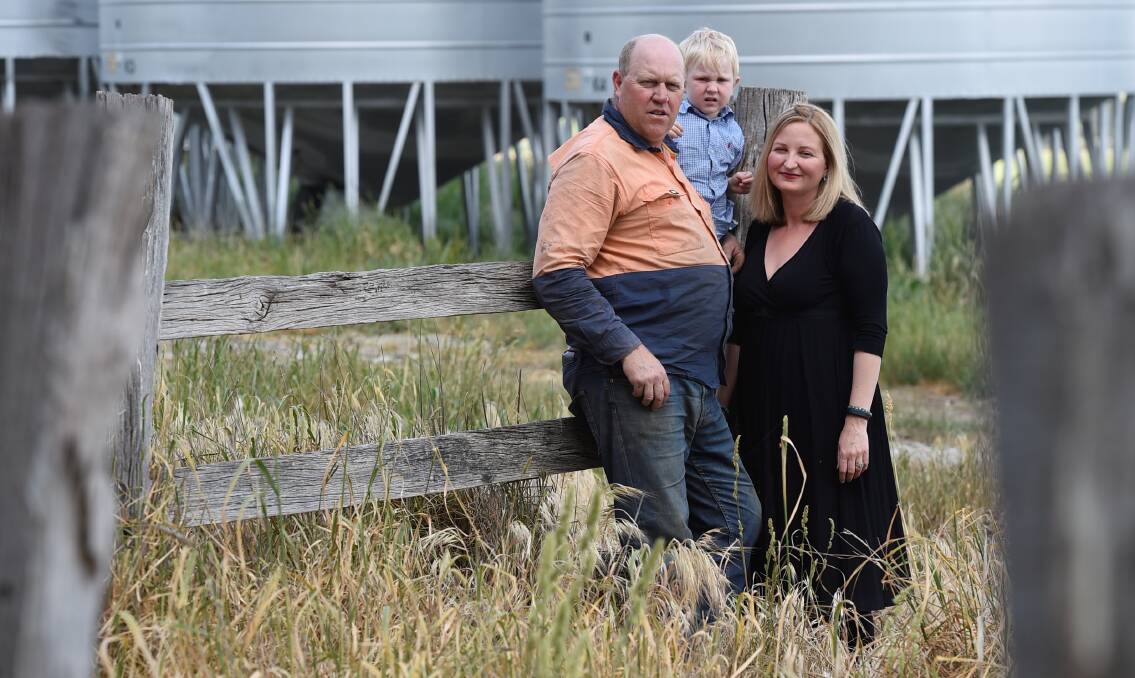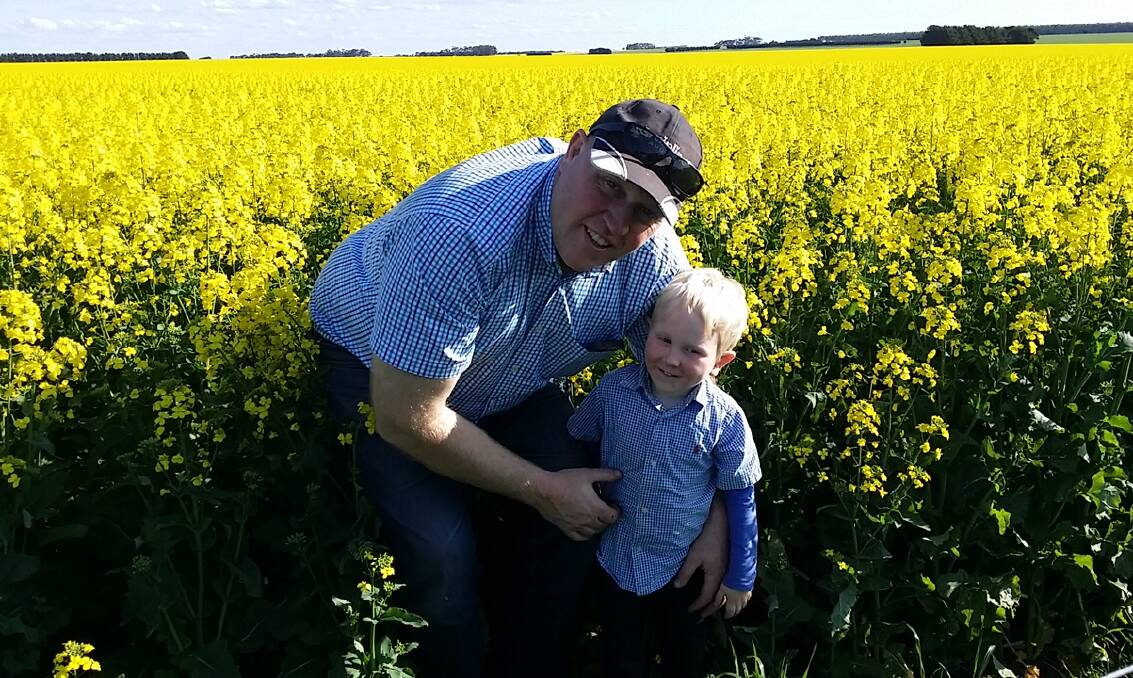AS VICTORIA braces for a disastrous harvesting season, one grain producer is reaching out to farmers at risk of suicide.
Subscribe now for unlimited access.
$0/
(min cost $0)
or signup to continue reading

During an overseas trip to Italy Nick Shady had an epiphany. "The trip came at a time in my life where I was at breaking point," Mr Shady said. “I reassessed everything, gained perspective and realised I’d lost a lot of my passion for farming and I wasn’t living the life I wanted.”
Gradually broken down by years of financial hardship and failed crops Mr Shady decided to move off his farm in Lismore and commute from Ballarat.
“Driving home from the farm gives me time to unwind,” Mr Shady said. “I find that if my environment is different, then so is my thinking. As a farmer, if you have a bad day, you go home and sit and look out the window and you can see that bad day in front of you. There’s no escaping it. It’s not a job, it’s your entire existence.”
Even good years came with pressure to live up to the same expectations the following season.
“It’s like building a house up then all of a sudden you’re not sure if its going to crumble or it will stand up,” Mr Shady said.
Despite similar rates of reported mental disorders in both rural and metropolitan areas, suicide rates have consistently been found to be higher in rural areas according to the Medical Journal of Australia.
But scratch the surface and Mr Shady said one of the biggest issues facing farmers is an inability to relax and escape from the often harsh realities of farm life.
Over the years Mr Shady has seen farmers crippled by the peaks and troughs of life in the industry. Five years ago one of his close friends hung himself.
“ Without connecting with people, you end up just treading water and trying to stay alive.”
- Nick Shady, Ballarat grain producer
After seeing so many families struggling in his own rural community, Mr Shady was compelled to make a stand.
“The ramifications of these mental health issues is so profound and far reaching," Mr Shady said. “One person might suicide but it ruins the lives of all those around them who are left behind to pick up the pieces.“
Victorian farmers face the toughest harvesting season in decades after the hottest October on record decimated crops across the state.

Early summer rain has kept some crops holding on but farmers face a grim and dry season ahead.
“October is our main rainfall month and it’s been a disaster,” he said. “We’ve had no rain... the stress on farmers is immense.” He said the “tipping point” for many men was the beginning of the year when they reflected back on the harvesting season.
“That’s when the regret creeps in,” Mr Shady said. “They’ll second guess decisions they’ve made. A lot of people put their head in the sand during a hard season and they don’t say anything. All of sudden January comes and they’ll ring their bank manager and realise it has been a disaster financially.”
As the years trickle on and seasons good and bad seasons pass by, Mr Shady said one certainty remained: Farmers would be forced to make tough decisions based on factors out of their control.
It’s for this reason, Mr Shady wants to be a catalyst for change. He wants robust support systems implemented to help farmers connect with financial counselors and their communities. Nationally, he wants to see the establishment of an online support network.
Mr Shady believed he understood some of the reasoning behind farmer suicides. He said triggers like feelings of shame often caused by financial strain and dealing with family issues are all compounded by a cycle of social isolation.
He has written a book with his wife Ayesha about succession planning and is working tirelessly to get a national suicide prevention website The Ripple Effect off the ground. The project aims to connect isolated farmers from across Australia to an online community and Mr Shady has been selected to be a contributor on the steering committee. He hoped it would save lives. The idea is to allow men from the farming community to work to fight against the stigma of rural suicide by turning the negative ripple of suicide into a positive ripple of support. It will be available on multiple platforms including computers, smartphones and tablets.
It estimated that there are three suicides in Ballarat per week, but Mr Shady believed the figure was much more. Suicide remained the biggest killer of young Australian men, accounting for more deaths than car accidents, but Mr Shady said it remained a silent toll. The burden carried by those left behind.
“There continues to be pent up shame surrounding suicide,” Mr Shady said. “There is so much talk about men in the country who don’t open up or can’t open up because they don’t see a forum where they can and we need to change that. Without connecting with people, you end up just treading water and trying to stay alive.”
Mr Shady said the way to connect with farmers at risk of falling into darkness was to “speak their language, in a space they feel at ease.”
“More gatherings like a farmers breakfast and evening drinks at the football club are a start,” Mr Shady said.
“It’s all about getting that mass of men together. They might only come for half an hour and have a sausage and go home. But they’ve made the effort to come and they’ve connected with the community. Often without talking about their worries, they’ve released stress from naturally connecting with other people.”
Lifeline 13 11 14
beyondblue 1300 22 4636

